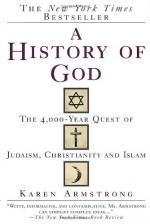
|
| Name: _________________________ | Period: ___________________ |
This test consists of 15 multiple choice questions and 5 short answer questions.
Multiple Choice Questions
1. Kabbalists used _______________ between the essence of God and the God who is revealed by the reality of creation.
(a) The Vedic and Neopolitan distinction.
(b) The Vedic and Neoplatonic distinction.
(c) The Gnostic and Neoplatonic distinction.
(d) The Gnostic and Neoclassical distinction.
2. Despite the conservatism occasioned by the rise of _____________ and the suppression of independent reasoning in the Sunni madrasahs, scholars, such as Mulla Sadr (ca 1571-1640), taught a philosophy that fused metaphysics and spirituality.
(a) The Shariah laws.
(b) The Shari laws.
(c) The Messiah laws.
(d) The Muslim laws.
3. Why were Jews and Muslims able to accept Darwin's theories?
(a) They take the creation story literally.
(b) They do not believe in the creation story.
(c) They do not believe God created all things.
(d) They are less concerned about the discoveries of the origins of life.
4. In this chapter Karen Armstrong outlines the developments in the nineteenth century which led to ____________.
(a) Questioning of God's purpose for mankind.
(b) Questioning of God's role on earth.
(c) Questioning of the existence and relevance of God.
(d) A renewed acceptance of God.
5. The medieval forms of religion erupted into fragmented sects and belief systems, led by such reformers as ____________.
(a) Baruch and Wesley.
(b) Luther and Wesley.
(c) Calvin and Wesley.
(d) Luther and Calvin.
6. Western secularism and the rising dominance of industrialized European countries had a profound effect on ____________.
(a) Americans.
(b) The environment.
(c) The Muslim religion.
(d) Politics.
7. Darwin's ORIGIN OF THE SPECIES seemed to ____________.
(a) Question the story of the Creation in Genesis.
(b) Support the story of the Creation in Genesis.
(c) Negate the story of the Creation in Genesis.
(d) Enhance the story of the Creation in Genesis.
8. In _________, a group of Jews, called Zionists, fled from Russia and settled in Palestine.
(a) 1682.
(b) 1882.
(c) 1782.
(d) 1982.
9. In other parts of the Muslim Empire, the Mongol invasion led to ____________.
(a) An end to conservatism.
(b) A resurgence of conservatism.
(c) An end to the Muslim Empire.
(d) A resurgence of liberalism.
10. In the Western world, the fifteenth and sixteenth centuries saw the development of entirely new cultures stemming from ____________.
(a) The Medieval Period.
(b) The Northern Renaissance.
(c) The Italian Renaissance and the beginning of the scientific discoveries.
(d) The Baroque Period.
11. What does Armstrong notice is happening to the churches in Europe?
(a) They are emptying.
(b) They are changing.
(c) They are rebuilding.
(d) They are filling.
12. In the Eastern church the experience of God was characterized as being like ____________.
(a) Sunbeams that can be seen by humans without them observing the sun, the source of the light.
(b) Thunder and lightning.
(c) Raindrops on the soil.
(d) Rainbows and doves in the sky.
13. The new religion of Deism became known as ____________.
(a) Calvinism.
(b) Methodist.
(c) Enlightenment.
(d) Lutheran.
14. The scientific work of Charles Darwin and the writings of Marx, Nietzsche, and Freud led to the conclusion that ____________.
(a) The traditional religions were correct.
(b) The traditional religions were completely inaccurate.
(c) The traditional religions were blasphemous.
(d) The traditional religions were now inadequate.
15. Advances in Western science led to ____________.
(a) An end to religion.
(b) A reexamination of the Christian religion and even to questioning the existence of God.
(c) An exiting of thousands from the Christian religion.
(d) The exile of all non-Christians in Europe.
Short Answer Questions
1. In Europe, scientists such as _______________, published their own theories as to the meaning and role of God in modern life, while, in England, the physicist Isaac Newton extended his opus magnus "Philosophiae Natruralis Principia" to prove God's existence.
2. In 1626, a wealthy Sephardic Jew in Symrna, called Shabbetai Zevi, started a movement in which he declared ____________.
3. Was tolerance of other religions was evident in Christian Spain?
4. The effect of this behavior towards Jewish people was ____________.
5. The history of the emergence of the Judaic scriptures can be interpreted as ____________.
|
This section contains 697 words (approx. 3 pages at 300 words per page) |

|




